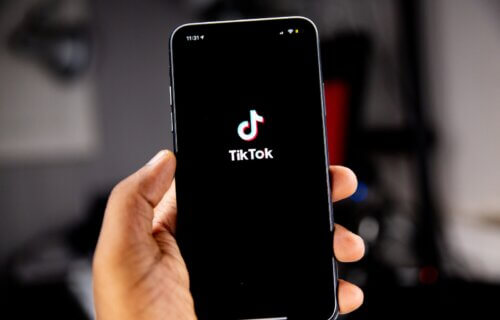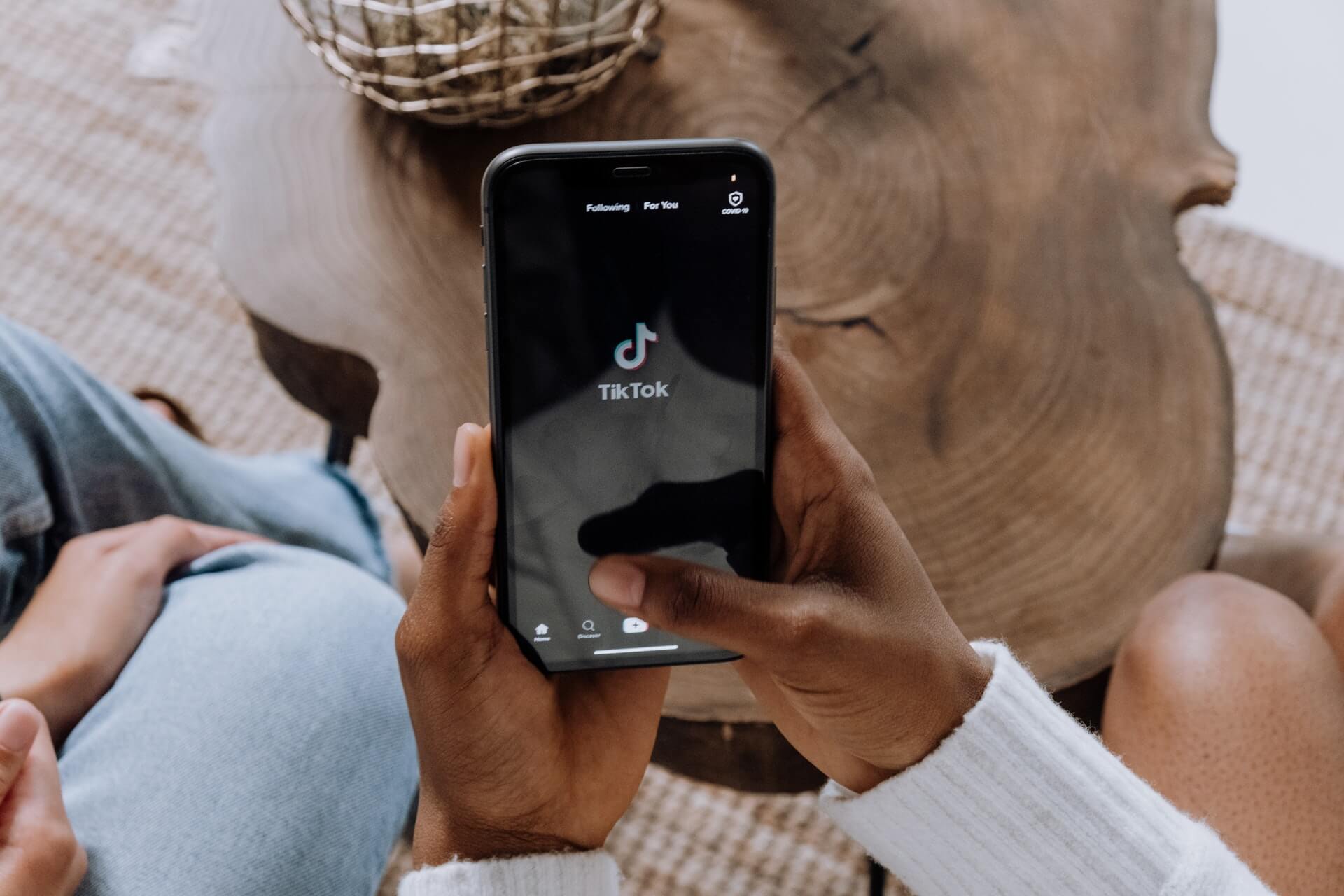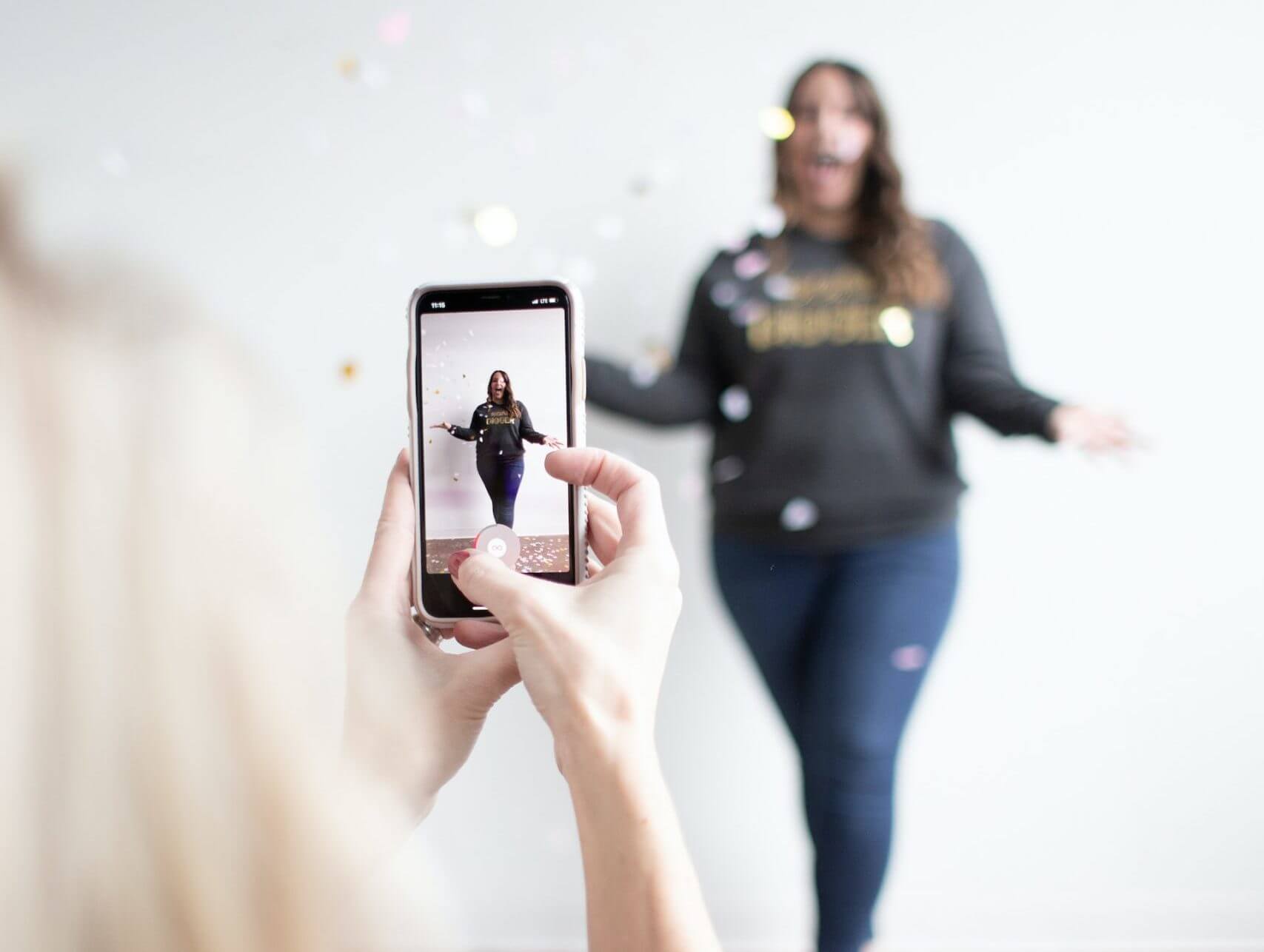Concerning number of unqualified health influencers discovered on TikTok

Photo by Solen Feyissa from Unsplash
by Shyla Cadogan, RD
CHICAGO — Today, social media platforms like TikTok are a big part of life for millions of people. Social media not only provides a few laughs, but it also gives users information on just about anything they can think of. Health information is at the top of this list, but is that a good or bad thing?
Hashtags like #celiactok and #diabetestok have garnered millions of views, with each tag taking you to numerous videos about each health issue.
“Every type of ‘Tok’ exists – that’s just how the internet works,” says Rose Dimitroyannis, a third-year medical student at the University of Chicago Pritzker School of Medicine, in a media release. “Little tiny segments of the population find one another and make waves.”
This has been a really positive thing in some ways. As a dietitian who engages with the media, I can reach a much wider audience and provide helpful information on a global scale, reaching just about anyone instantly.
It’s been a great way for other healthcare professionals like doctors to do the same. People who struggle with certain health conditions can also find community support online. At the same time, this type of accessibility opens people up to easily finding misinformation. People who pretend to be experts and misrepresent their educational background or just speak with authority despite not having any medical background can deceive the public and further fuel the spread of false narratives.
A lot of people who start new health trends or share their latest hack aren’t doing it with ill intent. Carrot salads for “hormone balance” and “sleepy girl mocktails” with magnesium aren’t really the bad guys. It’s just that a few clicks away, you can find someone else telling people to drink borax daily, which comes with more serious health risks.
“There is high-quality and factual information out there on social media platforms such as TikTok, but it may be very difficult to distinguish this from information disseminated by influencers that can actually be harmful,” says Christopher Roxbury, MD, a surgeon and rhinology expert at UChicago Medicine.

People on social media who speak with authority despite not having any medical credentials can deceive the public and further fuel the spread of misinformation.
(Photo by cottonbro from Pexels)
Dimitroyannis, Roxbury, and other researchers from the University of Chicago systematically analyzed health information on TikTok to see if they could determine how much misinformation is out there and if it comes from certain types of content creators. Their findings show that almost half of the videos analyzed contained non-factual information, with a significant amount of incorrect content coming from nonmedical creators.
To get a deeper understanding, the team narrowed their focus to a specific health condition and performed their search during a single 24-hour period in order to limit the effects of TikTok’s changing algorithm. They searched TikTok using certain hashtags related to sinusitis, including #sinusitis, #sinus, and #sinusinfection, organized the videos based on uploader types, content categories, and content types, and assessed the quality of the videos using various metrics, including understandability, actionability and reliability.
These assessments utilized both the knowledge of the researchers but also validated empirical tools like the Patient Education Materials Assessment Tool for Audiovisual Material.
Nearly 44 percent of the videos contained misinformation. Videos from “nonmedical influencers,” which are categorized as content creators with over 10,000 followers who did not self-identify as medical professionals, accounted for nearly half of all videos.
They were also more likely to spread misinformation and have lower quality scores. More typical videos from the average person were about daily life and comedy rather than trying to provide medical advice. The team found that medical professionals, by and large, produced educational content and received better scores for video quality, factual information, and harm/benefit comparisons.
Dimitroyannis, Roxbury, and other researchers from the University of Chicago systematically analyzed health information on TikTok to see if they could determine how much misinformation is out there and if it comes from certain types of content creators. Their findings show that almost half of the videos analyzed contained non-factual information, with a significant amount of incorrect content coming from nonmedical creators.
To get a deeper understanding, the team narrowed their focus to a specific health condition and performed their search during a single 24-hour period in order to limit the effects of TikTok’s changing algorithm. They searched TikTok using certain hashtags related to sinusitis, including #sinusitis, #sinus, and #sinusinfection, organized the videos based on uploader types, content categories, and content types, and assessed the quality of the videos using various metrics, including understandability, actionability and reliability.
These assessments utilized both the knowledge of the researchers but also validated empirical tools like the Patient Education Materials Assessment Tool for Audiovisual Material.
Nearly 44 percent of the videos contained misinformation. Videos from “nonmedical influencers,” which are categorized as content creators with over 10,000 followers who did not self-identify as medical professionals, accounted for nearly half of all videos.
They were also more likely to spread misinformation and have lower quality scores. More typical videos from the average person were about daily life and comedy rather than trying to provide medical advice. The team found that medical professionals, by and large, produced educational content and received better scores for video quality, factual information, and harm/benefit comparisons.

The findings show that almost half of the health-related videos analyzed contained non-factual information.
(Photo by Amanda Vick on Unsplash)
This isn’t to say that the medical professionals were always perfect.
“Medical professionals are people; they can still say wrong things,” Dimitroyannis points out. “But overall, health experts are posting more beneficial content.”
In the study data, only 15 percent of videos from medical professionals contained non-factual information, compared to nearly 60 percent of videos from nonmedical influencers.
“I frequently have patients in the clinic asking me questions about things they saw online or on social media, and I have found that many times the information has steered patients in the wrong direction,” says Roxbury, the study’s senior author. “In some cases, I see patients who have already sought out and undergone such treatment without any benefit; in rarer cases, they’ve been harmed.”
“As a clinician, you can’t deny that anyone who comes into your office has probably looked something up — which is well within their rights to try to understand their health,” adds Dimitroyannis, the lead author of the paper. “At the end of the day, patients and physicians alike should understand the power of this tool, recognizing the downsides while acknowledging that there can be good quality information available as well.”
The researchers are using their findings to drive home the point that critical thinking and discernment are key when it comes to receiving health information online. If there’s any confusion about how something could apply to your situation, ask your own professional.
As a registered dietitian, I see first-hand how people are constantly looking for the quick-fix diet or supplements. They are willing to try almost any trend they see online. This can actually set them back from reaching their health goals in a sustainable way. I always encourage people not to take anything online at face value, not even the things that I say, even though I always do my best to post accurate, up-to-date information.
Healthcare professionals can use the Internet for a lot of good. They can use platforms like TikTok and Instagram to enlighten people and make them think twice before hopping on a trend that likely won’t even benefit them or maybe even hurt them.
The findings are published in the journal Otolaryngology.
This isn’t to say that the medical professionals were always perfect.
“Medical professionals are people; they can still say wrong things,” Dimitroyannis points out. “But overall, health experts are posting more beneficial content.”
In the study data, only 15 percent of videos from medical professionals contained non-factual information, compared to nearly 60 percent of videos from nonmedical influencers.
“I frequently have patients in the clinic asking me questions about things they saw online or on social media, and I have found that many times the information has steered patients in the wrong direction,” says Roxbury, the study’s senior author. “In some cases, I see patients who have already sought out and undergone such treatment without any benefit; in rarer cases, they’ve been harmed.”
“As a clinician, you can’t deny that anyone who comes into your office has probably looked something up — which is well within their rights to try to understand their health,” adds Dimitroyannis, the lead author of the paper. “At the end of the day, patients and physicians alike should understand the power of this tool, recognizing the downsides while acknowledging that there can be good quality information available as well.”
The researchers are using their findings to drive home the point that critical thinking and discernment are key when it comes to receiving health information online. If there’s any confusion about how something could apply to your situation, ask your own professional.
As a registered dietitian, I see first-hand how people are constantly looking for the quick-fix diet or supplements. They are willing to try almost any trend they see online. This can actually set them back from reaching their health goals in a sustainable way. I always encourage people not to take anything online at face value, not even the things that I say, even though I always do my best to post accurate, up-to-date information.
Healthcare professionals can use the Internet for a lot of good. They can use platforms like TikTok and Instagram to enlighten people and make them think twice before hopping on a trend that likely won’t even benefit them or maybe even hurt them.
The findings are published in the journal Otolaryngology.
No comments:
Post a Comment